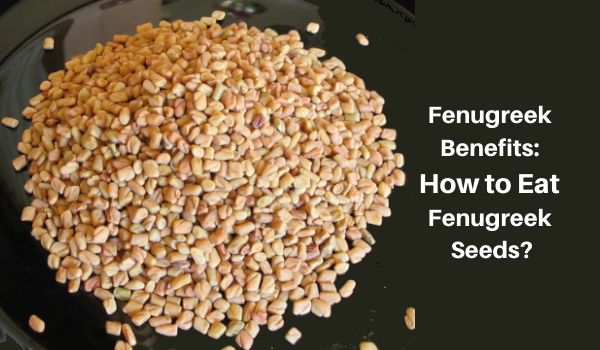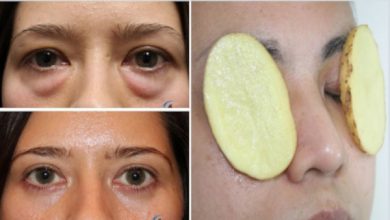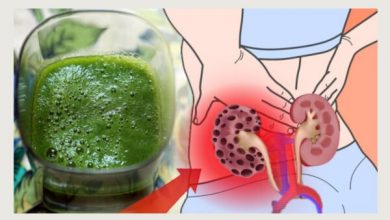Fenugreek Benefits: How to Eat Fenugreek Seeds?

Are you looking for how to eat fenugreek seeds let’s know what is fenugreek? Fenugreek also is known as methi, an essential plant; its seeds and leaves have immense beneficial effects on the body. This nutritious food can be consumed in seeds, leaves, powder, or sprinkled food items.
The composition of fenugreek contains numerous phytonutrients that have medicinal value. Fenugreek is used for the prevention and treatment of multiple medical conditions.
Fenugreek Benefits and How to Eat Fenugreek Seeds
1. Fenugreek Seeds for Diabetes
Fenugreek is a powerful anti-diabetic. It slows down the absorption of sugar and stimulates the production of insulin. It is an effective tool to control blood sugar and to have optimum blood sugar levels.
How to eat fenugreek seeds for diabetes
- The amount of fenugreek to control blood sugar is between 2.5 g to 12 g in a day, depending upon the other medications, weight, and dietary factors.
- It can be consumed in the form of a capsule, tea, or added to food.
2. Fenugreek seeds Lower Cholesterol
It helps in reducing cholesterol, especially LDL cholesterol. The steroidal saponins present in the fenugreek seeds help inhibit the absorption of cholesterol and triglycerides from fatty foods.
How to use
Fenugreek powder should be used 10 to 30 g thrice daily after meals.
ALSO READ: Foods that Lower Cholesterol Fast
3. Fenugreek seeds for Heart Diseases
Fenugreek is effective in maintaining optimum blood pressure and heart rate. It controls blood sugar and cholesterol, the predisposing factors for heart diseases.
How to use
- When consumed 50 g per day, Fenugreek powder is effective in reducing the risk of heart diseases.
4. Fenugreek Seeds for Hair Growth
It is high in proteins and nicotinic acid content. Fenugreek prevents dryness of the scalp, prevents free radical damage and thinning of hairs. It nourishes and moisturizes the hair to maintain the luster and bounce.
How to use
- Soak fenugreek seeds in coconut oil for about 12 hours. Then boil the oil and keep it aside to let it cool.
- Apply the oil on the hair and leave it for about 3 hours. Use fenugreek oil regularly to prevent dandruff and hair fall.
- Fenugreek tea can also be applied to the head after shampoo.
5. Fenugreek Seeds Hair Mask
Fenugreek Seeds for Weight loss: Fenugreek is high on fiber content when consumed on an empty stomach. It gives you a feeling of fullness.
It suppresses the appetite. Fenugreek can be your ideal partner in your weight loss journey. It increases the metabolic rate of the body.
Fenugreek sprouts are rich in nutrients, vitamins, minerals, amino acids, etc. It helps in losing extra water, prevents water retention and bloating.
How to use
- One teaspoon of overnight soaked seed in water should be taken on an empty stomach.
ALSO READ: How to Eat Chia Seeds for Weight Loss
6. Fenugreek seeds for Lactation
Post-pregnancy it is common to see women finding it difficult to produce a sufficient amount of milk.
Fenugreek is traditionally being used as a galactagogue, a milk production enhancing agent post-delivery.
Fenugreek enhances milk production by 500% in just a couple of days. The ingredient diosgenin has estrogen-like properties promoting the production of milk.
Fenugreek should not be consumed during pregnancy as it can harm the baby during this period. It is advised to take fenugreek under the guidance and supervision of the doctors.
Fenugreek can have potential interactions with other medications.
How to use
- It can be consumed in the form of capsules or tea. It is advised to take 600 mg of Fenugreek capsules twice or thrice daily.
- Fenugreek tea can be made using the powder (1 teaspoon), boil water, and steep the fenugreek for 3 mins.
- It can be consumed as a hot or cold tea; it can also be consumed with apple juice. Honey can be added to get a better taste.
7. Fenugreek seeds Ease Labor
Fenugreek is composed of oxytocin, a vital ingredient that can cause uterine contractions and preterm labor. It reduces labor pain. It is also used to induce labor but under expert supervision.
Excess intake of fenugreek can endanger the life of the fetus. In animal studies, it has caused birth defects and developmental problems.
How to use
- Soak fenugreek seeds in water overnight, strain, and drink the water in the morning.
- One can also consume a fistful of fenugreek leaves to get the same beneficial effects.
8. Fenugreek seeds for Periods Pain
It is one of the most common issues faced by all women during their lifetime. Menstrual cramps, hot flashes, and mood swings will be challenging to deal with it.
Certain medications can have a soothing effect on the body. The components of diosgenin and isoflavone have estrogen-like properties.
The regular blood flow during menstruation causes blood loss. Fenugreek is composed of iron which helps compensate for the iron loss.
How to use
- At the onset of periods, consume 200 g to 250 g of fenugreek seed powder thrice daily for 3 days and continues with 1000 g of fenugreek.
- It reduces pain considerably after 2 menstrual cycles.
9. Fenugreek seeds for Skin Diseases
Regular consumption of fenugreek seeds cleanses and gives clear skin. Vitamin C in Fenugreek helps in improving the complexion, moisturizes, and exfoliates the skin.
It is also helpful in various skin problems such as abscesses, burns, eczema, acne, gout, etc. Fenugreek is a powerful antioxidant that prevents free radical damage and prevents wrinkles.
How to use:
- A tablespoon of fenugreek seeds powder in warm water can be applied to clean skin to reduce infections and scars.
Don’t miss: Are Watermelon Seeds Good for you
10. Fenugreek seeds for Digestion
Fenugreek seeds are rich in water-soluble fiber and possess anti-inflammatory properties.
Fenugreek seeds help clean toxins, prevent constipation and are traditionally used in Chinese medicines as a digestive aid. Fenugreek seeds form a lining on the digestive tract that prevents heartburn.
It is also found to be effective in treating ulcerative colitis—the tea aids in indigestion and stomach pain.
How to eat fenugreek seeds for digestion
- Fenugreek can be consumed with regular tea; you also have the option of flavoring it with nutmeg, honey, and lemon.
- Take one teaspoon of fenugreek powder on a tea strainer and pour boiling water or tea over it.
- Steep the liquid and let it rest for 15 mins. You can take one teaspoon of fenugreek powder for every cup of tea.
Fenugreek is a healthy food that has several health benefits to prevent and treat diabetes, cholesterol, heart diseases, stimulate milk production, and even eases Digestion.
Fenugreek also helps in improving the aesthetic appearance as it has an anti-aging effect. It is a must-have ingredient in every household for healthy well-being.
Be sure to read: Coriander seeds water benefits for thyroid
So, friends, we hope that going through the above How to Eat Fenugreek Seeds will surely help you.





